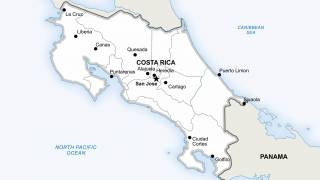Dengue Alert Updated for Asia & the Pacific Islands

The US Centers for Disease Control and Prevention (CDC) has reissued a Level 1 Travel Alert regarding the various dengue fever virus outbreaks in the Asia and Pacific Islands region.
On December 4, 2019, this CDC Travel Alert said ‘the countries listed below are reporting higher-than-usual numbers of dengue cases, and travelers visiting these countries may be at an increased risk.’
- Bangladesh
- Cook Islands
- Federated States of Micronesia
- French Polynesia
- Guam
- Marshall Islands
- Philippines
- Nepal
- Pakistan
- Palau
- Singapore
- Sri Lanka
Additionally, the CDC reported 1,026 travel-related dengue cases by US states as of December 4, 2019. Florida (321), California (177), and New York state (93)are the unfortunate leaders during 2019. And, the state of Florida is the leader in reporting locally-acquire dengue cases during 2019.
And, the US Territories have reported an additional 46 cases.
Furthermore, the CDC hosts an interactive map that highlights dengue cases by the US state and city over the past years.
Dengue is caused by a virus that has 4 different but closely-related serotypes. When a person recovers from the infection, he acquires lifelong immunity against that particular serotype.
However, subsequent infections caused by other serotypes increase the risk of acquiring more severe forms of dengue. Dengue can become severe within a few hours.
Severe Dengue is a medical emergency requiring immediate medical attention and usually requiring hospitalization. In these cases, health effects can include hemorrhage, shock, organ failure, and death.
A blood test is the only way to confirm the diagnosis. Your healthcare provider may order blood tests to look for dengue or other similar viruses like Zika or chikungunya.
> Order confidential blood tests from UltaLabs <
There is an FDA-approved preventive vaccine available for the dengue virus in various countries, and in the USA.
On May 1, 2019, Dengvaxia became the first vaccine approved in the USA for the prevention of dengue disease in people ages 9 through 16 who have laboratory-confirmed previous dengue infection and live in endemic areas caused by all dengue virus serotypes.
The CDC says before being vaccinated with Dengvaxia, inform your healthcare provider if you have dengue symptoms or live in or have recently traveled to an area with risk of dengue.
Furthermore, the CDC says ‘travelers to areas at risk for dengue should protect themselves by preventing mosquito bites by using an EPA-registered insect repellent, wearing long-sleeved shirts and long pants when outdoors.’ And, the CDC suggests sleeping under an insecticide-treated bed net is protective.
Note: The CDC says any vaccine can cause side effects, which should be reported to a healthcare provider.
Dengue vaccine news is published by Vax Before Travel
Our Trust Standards: Medical Advisory Committee























